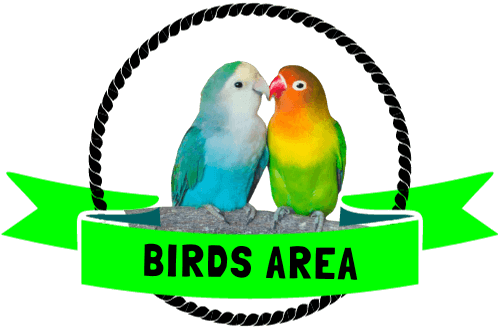Stop Budgie Bullying Other Budgie | Quick Fix Guide
Budgie bullying other Budgie happens due to territory, stress, or dominance. Signs include biting, chasing, and blocking food access. Solutions involve cage separation, rearranging items, and ensuring enough space for each bird.
Budgies are social birds that love company. But sometimes, one budgie bullies another. If you’ve noticed this with your birds, don’t worry—you’re not alone. Bullying can look like chasing, biting, or stopping the other budgie from eating.
In this post, I am explaining why budgie bullying happens, how to stop it, and what you can do to make both birds feel safe.
Why Does Budgie Bullying Happen?
Bullying among budgies happens for a few reasons. Some budgies might feel scared or stressed. (You can also read “What sounds scared budgies“).
Others might want more space. Territory is a big reason. Budgies can become very protective of their food, toys, or perch.
If one budgie feels like the other is invading its space, it can lead to fights. In some cases, it’s a personality issue. Just like humans, some budgies are naturally more dominant.
Age and Gender Differences
Age can also play a role. Young budgies may not know how to behave properly with others. Older budgies might bully a new, younger budgie if they feel their spot in the group is being threatened.
Similarly, male budgies sometimes become aggressive to show dominance, especially if there’s a female budgie nearby.
Read more
Signs of Bullying in Budgies
It’s essential to watch for signs of bullying in your budgies so you can step in early.
Here are some key behaviours to look out for:
- Biting: If one budgie bites the other, especially around the beak or feet, it’s a clear sign of aggression.
- Chasing: Does one bird constantly chase the other? This can cause stress and lead to injuries.
- Stopping the other from eating or drinking: Bully budgies sometimes prevent others from eating or drinking, which can lead to health problems for the victim.
- Feather plucking: If one budgie is pulling out the feathers of the other, this is a big warning sign.
If you notice these behaviours, it’s time to take action.
How to Stop Budgie Bullying Other Budgie
Now that you know why budgies bully, it’s time to stop it.
Here are some steps you can take:
1. Separate the Budgies
One of the easiest ways to stop budgie bullying is by separating them into different cages. This gives each bird space to relax.
Please make sure the cages are far enough apart that they can’t attack through the bars but close enough so they can still see each other. This way, they can get used to each other’s presence without fighting.
2. Rearrange the Cage Setup
Budgies can be very territorial. A new setup in the cage might help reduce bullying. Try changing the positions of the perches, food bowls, and toys.
This can make the environment feel new and exciting for both birds, helping to prevent one from claiming everything. Add extra toys and perches to ensure there are plenty for both to play with and perch on.
3. Create Personal Space
Make sure your budgies have enough space. A small cage can increase aggression because the birds feel cramped. A cage at least 18×18 inches is the minimum size for two budgies, but bigger is always better. Add more perches and feeding areas to give each budgie its own space.
4. Bonding Time with Your Budgies
Sometimes, spending more time with both budgies can help with the bullying. Give them equal attention so the bully doesn’t feel like they are getting less love.
Training them together with treats can also help them bond. Try offering treats when they are sitting calmly near each other. Positive reinforcement can change their behaviour over time.
5. Let Them Fly Outside the Cage
Letting your budgies fly freely in a safe room can also reduce tension. Outside the cage, they’ll have more space to move around, which helps avoid territorial fights. Just ensure the room is safe—close windows, block small spaces and remove anything dangerous. Flying together can help them build a better bond.
Is Your Budgie Stressed or Sick?
Bullying sometimes happens because one budgie is feeling stressed or sick. Stress can come from a loud environment, sudden changes, or even boredom. To keep your budgies happy and stress-free, ensure their cage is quiet, away from too much noise or activity. Also, rotate their toys to keep them entertained.
If your budgie is sick, it might become irritable and start bullying others. Look for signs like fluffed-up feathers, lack of energy, or a change in eating habits. A trip to the vet can help rule out illness as a cause of aggression.
Can You Keep Bullying Budgies Together?
In some cases, the bullying might continue even with separation and changes. If one budgie is constantly hurting the other, it might be time to consider finding them separate, permanent homes.
Your budgie’s safety is always the most important thing. If keeping them together is causing stress or harm, separating them for good is okay. Some budgies prefer to be alone.
My Story Of Reducing Process Of Budgies Bullying
Things didn’t go smoothly when I first introduced my second budgie, Sunny, to Bluey. Bluey would chase Sunny away from the food bowl and try to bite him. After some research, I realized Bluey felt his space was threatened.
I separated them for a few days, rearranged the cage, and spent time with them both outside the cage. It took time, but eventually, they learned to live together peacefully. Patience and small changes made all the difference.
Expert Opinion on Budgie Bullying
According to avian experts, budgie bullying is common, especially in small cages. Dr Ellie Johnson, a bird behaviourist, explains, “Budgies are social, but they need space and mental stimulation. Without this, aggression is likely.”
She advises regular playtime, introducing new toys often, and watching for signs of stress. By making small changes, most budgie bullying can be resolved.
Frequently Asked Questions And Answers
1. How can I tell if my budgie is being bullied?
2. Will my budgies ever stop bullying each other?
3. Why is my female budgie bullying the male?
4. Can two female budgies live together without fighting?
5. Should I separate my budgies if they start fighting?
6. How long does it take to stop budgie bullying?
Sum Up | Ensuring a Happy Budgie Life
Budgie bullying can be worrying, but you can help both birds feel safe and happy with the right steps. Separate them if needed, make sure they have enough space, and monitor their health. With time and effort, your budgies can become best friends—or at least learn to live together without fighting.
Remember, always keep an eye on your budgies’ behaviour, and don’t hesitate to make changes. Your budgies’ happiness and safety are what matter most. Stop budgie bullying today with these easy tips.
Please share if this post helped you understand how to handle budgie bullying.
Thanks.







